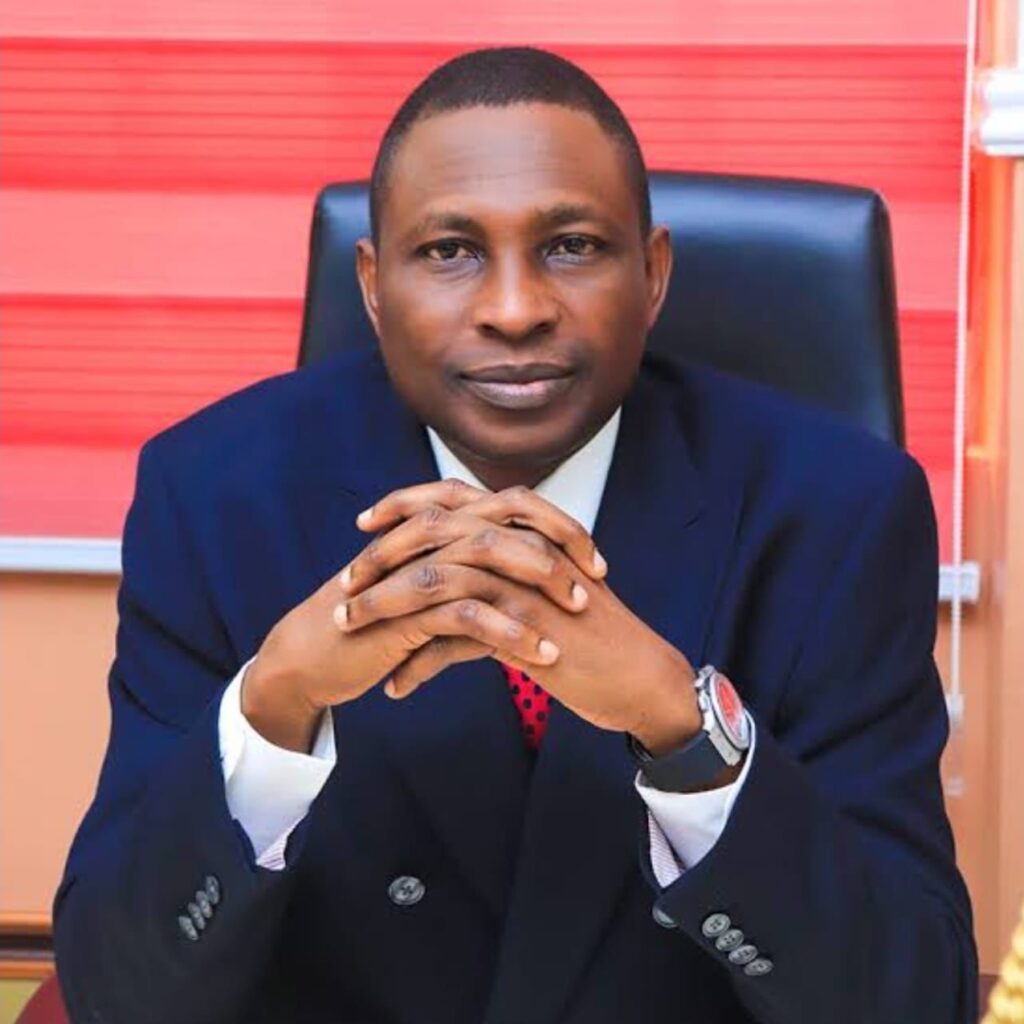
Sequel to the criticisms that followed the appointment of Mr Ola Olukoyede as the new chairman of the Economic and Financial Crimes Commission (EFCC), the presidency has reeled out eight reasons why his appointment was merited.
DAILY POST earlier reported that President Bola Tinubu appointed Olukoyede to take over from the suspended Abdulrasheed Bawa as the anti-graft agency boss.
However, the appointment, which was contained in a statement issued on Thursday by the presidential spokesperson, Ajuri Ngelale, was shrouded with criticism as netizens took to social media to express their displeasure.
According to some of the critics, Olukoyede was not qualified for the job, saying he did not meet the statutory requirements.
The argument was hinged on Section 2(3) of the EFCC Act, 2005, which stipulates that a chairman of the commission “must be a serving or retired member of any government security or law enforcement agency not below the rank of Assistant Commissioner of Police or equivalent; possess not less than 15 years experience.”
Reacting, the Senior Special Assistant to the President on Public Engagement, Fredrick Nwabufo, argued that the president followed due process before approving the appointment.
In a post on his official X handle, Nwabufo gave eight reasons Olukoyede deserved to be the EFCC boss.
According to him, President Tinubu approved the appointment in line with Section 2(3) of the EFCC (Establishment) Act, 2004.
Below are the reasons Nwabufo stated:
1. Mr Olukoyede was the Chief of Staff to the Executive Chairman of the EFCC (2016-2018) and Secretary to the Commission(2018-2020). He was a member of a law enforcement organisation as Secretary, in this case the EFCC, as stipulated in the EFCC Act, and as such satisfied every legal detail to be appointed as Chairman.
2. Section 2(1)(p) of the EFCC Act plainly, ordinarily, and unambiguously established the Secretary to the Commission (i.e., EFCC) as its member and head of its administration.
3. The Supreme Court determined in the case of Ejuetami v. Olaiya & Anor (2001) LPELR-1072 (SC) at Pg.23-24, that: The words used are to be given their ‘ordinary and natural sense’. Therefore, the clear, explicit and unambiguous words used in sections 2(1)(a)(i)-(iii), (p), 2(2), 3(1)-(3) and 8(5) of the EFCC Act must be given their ordinary and natural sense in line with the guidelines set by the Supreme Court in its long line of undisturbed judicial precedents.
4. The provision of Section 2(1) sub-paragraph (iii) of the EFCC Act did not state the nature of the experience which a person is required to possess for fifteen (15) years.
This implies that such cognate experience is presumed to be that of the work or functions of the EFCC acquired anywhere since the EFCC Act did not state the specific place where it must be acquired. It is also unambiguous by the provisions of sub-paragraph (iii) that once a person possessed fifteen (15) years of such cognate (i.e., similar or alike) experience, then he has satisfied the provisions of sub-paragraph (iii) of section 2(1)(a) of the EFCC Act.
5. It is clear from the unambiguous provisions of the EFCC Establishment Act, 2004, that any member of the Commission whether serving or retired who has 15 years’ cognate experience in their chosen career is eligible to be appointed as the Chairman of the Commission.
6. Prior to this time, the convention and precedence is that to be qualified for appointment as the Executive Chairman of the Commission, the nominee must be a Police Officer or someone with law enforcement background, particularly in the area of investigation. This has not only exposed the Commission to all manner of vices but has brewed internal wrangling, discontent, and hatred among the members of staff of the Commission.
7. It is nonjusticiable to elevate convention above statutory provision. It is time to move away from fiction to fact and from convention to strict adherence to the statutory provisions of the enabling Act of the Commission in our constitutional democracy.
8. Mr Olukoyede satisfied every legal requirement to be appointed as EFCC Chairman.


